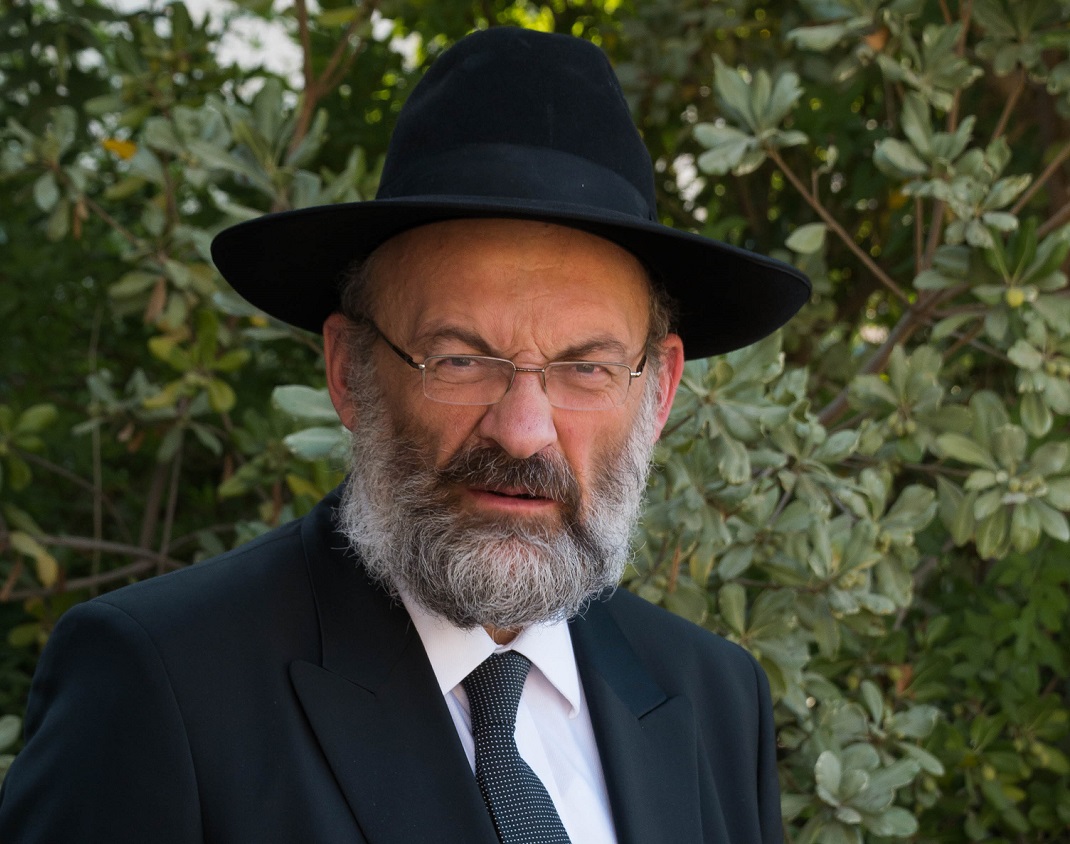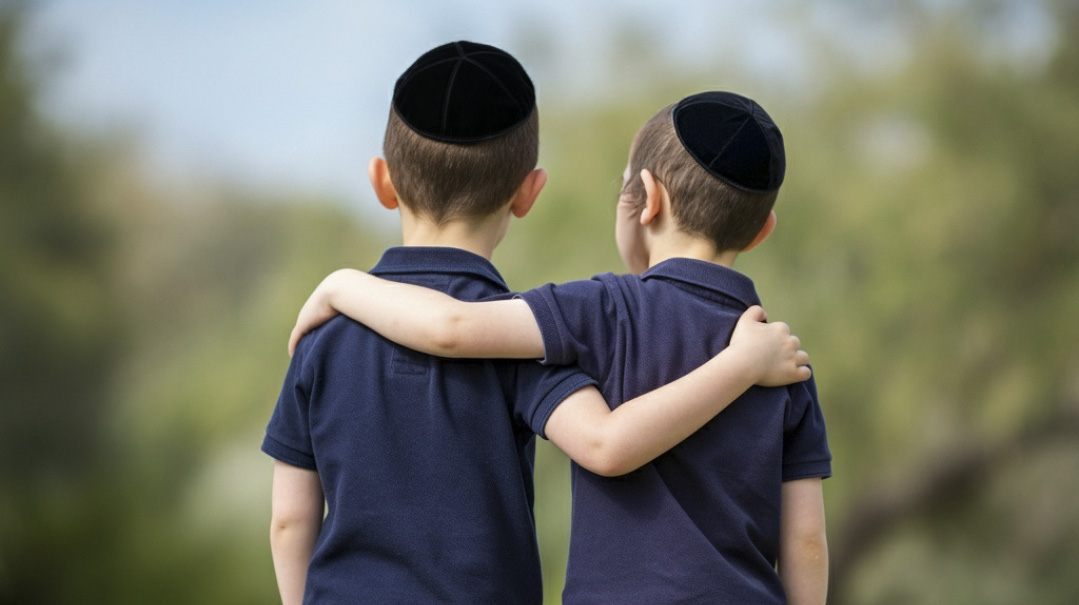The Power of the Day

The unique power of Yom Kippur is called “itsumo shel yom.” It cleanses us and transforms us
Prepared for print by Rabbi Eran Feintuch
When we hear the words “Yom Kippur,” we get nervous. The demands of the day seem impossible. We must do teshuvah for every improper deed, word, and thought. We have to be perfect and holy the whole day. We have to daven so many tefillos, almost the entire day, with kavanah. And we have to do all this while fasting. We’re tense the whole day long, and relieved when it’s finally over.
But for some, Yom Kippur has an entirely different flavor. I’ve seen gedolim who are serene and full of simchah from Kol Nidrei till the final shofar blast. No, it’s not because they’re saints who do nothing wrong and effortlessly pray with dveikus. It’s because they’re in tune with the real nature of the day. They know that it’s not a day of daunting demands. It’s a day of tremendous rachamim, when Hashem takes us by the hand and leads us away from our past misdeeds into a new, purer life.
Yom Kippur has a power unlike any other day. All the moadim have a special characteristic that certain spiritual achievements are easier on those days. It’s easier to achieve simchah on Succos than the rest of the year; on Pesach it’s easier to break free from negative habits that inhibit our avodas Hashem.
But on Yom Kippur, the day itself changes us. The Gemara brings an opinion that Yom Kippur atones for our transgressions, even without teshuvah. The consensus is, of course, that we need to do teshuvah. But we don’t need to do it all ourselves. Yom Kippur isn’t just a walking stick to help us trudge the long road to atonement. Yom Kippur is the train that takes us there. All we need to do is pay the fare through teshuvah and tefillah.
The unique power of Yom Kippur is called “itsumo shel yom.” It cleanses us and transforms us. That’s why the gedolim are calm and joyous. The whole year, we struggle to set ourselves back on track. On Yom Kippur, we get a helping hand. How could we not rejoice at such a life-changing gift?
Yom Kippur is a glimpse of another reality, a visit to a higher world. Yom Kippur is a day when we rise above our natural limitations and experience a closeness to Hashem that’s normally reserved for the angels. The prohibitions of the day aren’t just afflictions; they reflect the higher reality of the day. The whole year, we’re anchored to the body’s demands. But on Yom Kippur, we’re like malachim. When you’re so close to Hashem, eating and drinking are inconceivable.
On Yom Kippur, we rise above our physical desires. We break free from our slavery to the body and make Hashem our Master in its stead. Then, from that new vantage point, we see the disgrace of our aveiros, and wonder how we were foolish enough to do them. We distance ourselves from them, and vow to live differently. Not just because we know we’re supposed to. Because finally, we really want to.
On Yom Kippur, for the first time, we identify with Hashem’s will and not our yetzer hara. The yetzer hara is deeply ingrained in us since our very first day. It’s our constant companion, and it always speaks close to home. The yetzer tov, on the other hand, is outside of us, and tells us what to do: “You should do this, you shouldn’t do that.” It’s an annoying, self-appointed advisor who always tries to spoil our fun. Needless to say, we identify with the yetzer hara.
But on Yom Kippur, Hashem’s will becomes our own, and we see the yetzer hara for the scoundrel that it is. We realize that the way we’ve lived till now is not what we want. Our aveiros no longer speak to us. We don’t identify with them anymore. We’re ready to break free from them, and begin a new life.
That’s why there’s an old custom to chant the Vidui in an upbeat melody. A happy tune seems like a bizarre way to confess our aveiros. But at the new heights Yom Kippur brings us to, it fits the occasion. Of course, we’re full of regret. But on the other hand, we’re hopeful and joyous, because we’ve disassociated ourselves from the aveiros. We don’t want them anymore. We can’t wait to leave them behind and begin anew. Our will is no longer bound in their shackles. So while we’re full of remorse, we’re also full of hope. That’s how we can sing the Vidui.
This is the power of itsumo shel yom. Yom Kippur is an ambience of kedushah, a world in which Hashem’s presence is palpable. A world in which we see clearly that doing Hashem’s will brings life, and defying it brings spiritual death. A world of clarity, in which we can discern the right path from all the false ones.
That ambience of kedushah cleanses us of our aveiros, as long as we do teshuvah. It’s the antidote to the ambience of wrongdoing that pervades the world all year round. We all want to do the right thing. But the world leads us astray. We’re all exposed to people who influence us negatively. Even if we live among tzaddikim, the immoral culture of larger society leaves its mark on us. But on a more basic level, the fabric of the physical world leads us away from Hashem. The ambience of the world is opposed to kedushah. It entices us to do outright aveiros. And worse, it tricks us into thinking that a terrible aveirah is actually a big mitzvah.
The world gets away with it, until Yom Kippur. Yom Kippur brings upon the world an ambience of kedushah, of closeness to Hashem. Suddenly, we see everything in a new light. We see how misguided we’ve been, how, despite our best intentions, we’ve often taken the wrong path.
That is the real meaning of Kol Nidrei. Once, a non-Jewish cellist asked me for the translation of the Kol Nidrei text. He told me he was performing a famous cello piece by Bruch called “Kol Nidrei,” and was deeply moved by its haunting melody. He learned that the melody was borrowed from the Jewish prayers, and he had to find out what profound poetry was expressed by such beautiful music. I gave him the translation, and he began to read it eagerly. Soon, his excitement turned to confusion, then to disappointment. A technical nullification of this type of vow, that type of vow.... What strange lyrics for such emotionally charged music!
The answer is that the annulment of our vows reflects the new ambience of the day: itsumo shel yom with all its power. We make vows out of the best intentions. We make them because we’re sure it’s the right thing. Then comes Yom Kippur, and everything changes. Suddenly, all our assumptions are out the window. We see how misled we were, how the path that seemed golden actually took us in the wrong direction. With that realization, we annul all our vows, and start anew.
If we’re aware of the power of Yom Kippur, we don’t need to be nervous. In fact, being nervous makes us too caught up in ourselves to perceive the special ambience of kedushah Yom Kippur ushers in. We’re busy judging ourselves and our performance in tefillah, and we miss the life-changing experience of itsumo shel yom. Let’s leave aside our anxiety about our past, and our pressure to daven with kavanah, and open our hearts and minds to learn all we can from the unique nature of this day. Then, we too can daven the whole day long with sincerity and joy.
May we all have a gemar chasimah tovah.
(Originally featured in Mishpacha, Issue 877)
Oops! We could not locate your form.







